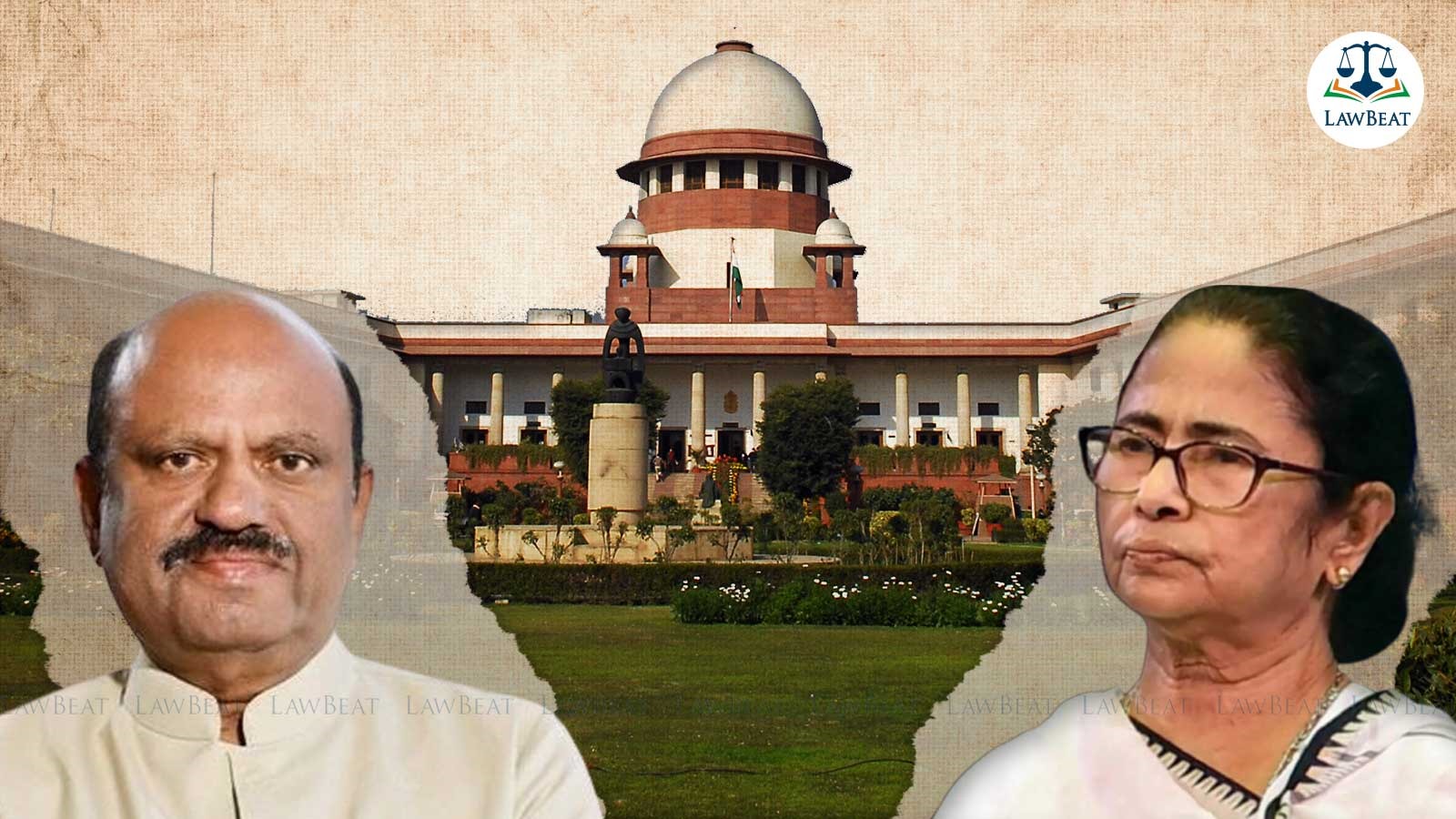SC issues notice to UoI in West Bengal's plea accusing Governor of sitting over Eight Bills since 2022

In its writ petition, the WB government also sought directions for laying down guidelines stipulating the outer time limit for the Governor to consider files, policies, Government orders sent for signature
In the plea filed by West Bengal government accusing the Governor of sitting over eight bills passed since 2022 without no reasons and de hors the constitutional mandate, infringing upon rights of the residents of the State, the Supreme Court of India has today issued notice.
CJI DY Chandrachud led bench asked the state to implead Union of India as a party and has issued notice.
"Every time the Supreme Court lists these matter some bills are cleared..", Senior Advocate AM Singhvi told the bench also comprising Justices JB Pardiwala and Manoj Misra, referring to the recent actions of Governor Ananda Bose passing two bills lying before him.
On July 12, Advocate Astha Sharma had mentioned the writ petition filed by the TMC government before a bench of Chief Justice of India D Y Chandrachud and Justices J B Pardiwala and Manoj Misra for urgent hearing.
In its plea, the state government stated eight bills passed since 2022, have been kept in a limbo without any action thereby rendering the actions of the State Legislature otiose, and in turn directly affecting the residents of the State of West Bengal, for whose welfare the Bills were passed, and thereby creating an unconstitutional state of affairs by the Constitutional post itself.
"The conduct of the Governor, not only threatens to defeat and subvert the very fundamentals and basic foundation of our Constitution, including the rule of law and democratic good governance, but further proceeds to infringe upon the rights of the people of the State to the welfare measures sought to be implemented through the bills, thereby leading to the State failing in its duties as the parens patriae," it said.
The plea said despite the Governor for the State of West Bengal being aware of the decisions of this Court in similar circumstances for the States of Telangana and Punjab, several crucial Bills have been lying dormant with the Governor of the State since 2022 when Jagdeep Dhankhar and no steps have been taken by his successor and the incumbent Dr C V Ananda Bose.
It further said Article 200, Constitution of India casts a solemn duty on the Governor of a State by requiring that on the presentation to him of any bill passed in the State Legislature to mandatorily do (i) assent to the bill; or (ii) withholds the assent; or (iii) reserves the bill for the consideration of the President.
The state government said the Governor has to act "as soon as possible" as per the proviso of the main provision, which means that not only should the pending bills be disposed of within a reasonable time, but further that these bills have to be dealt with urgently and expeditiously without any avoidable delay.
"The phrase therefore conveys the clear and explicit intention of the Constitution of India, that the Governor of a State has to treat the Bill presented to him with a sense of urgency and alacrity," it said.
Since the presentation of the first pending bill on June 15, 2022, several other bills have been dealt with the non-disposal of the other bills is a conscious and deliberate act, and not where the opportunity or the time has not presented itself, or where it was not possible to act “as soon as possible”, in terms of the constitutional Mandate under Article 200, the plea said.
Of the eight bills pending, seven related to Universities and one to town and country planning and development.
"To the utter shock and dismay of the petitioner herein, such acts of omissions and commissions by the Governor is causing grave injustice to the people of the State, as also to its representative democratic institutions (i.e. The State Legislature and the Executive), and the conduct of the Governor that the act of assenting or returning the bills is a matter based on his whims and fancies or absolute discretion, is not only incorrect understanding of the Constitutional provisions, but a contumacious act of subversion of the Constitution," the plea said.
It has been further said the immunity under the ambit of Article 361 of the Constitution, would also have no application in the present case, as the actions/inactions of the Governor are ultra vires to the Constitution, and therefore outside the purview of the immunity granted to the Governor, from being answerable to any court.
The TMC government asked the court to declare the inaction, omission and delay as unconstitutional, illegal, arbitrary, unreasonable besides malafide exercise of power. It also sought a direction to the Governor through his secretary to dispose of those bills within a specified time frame.
Case Title: State of West Bengal vs. Governor, West Bengal
